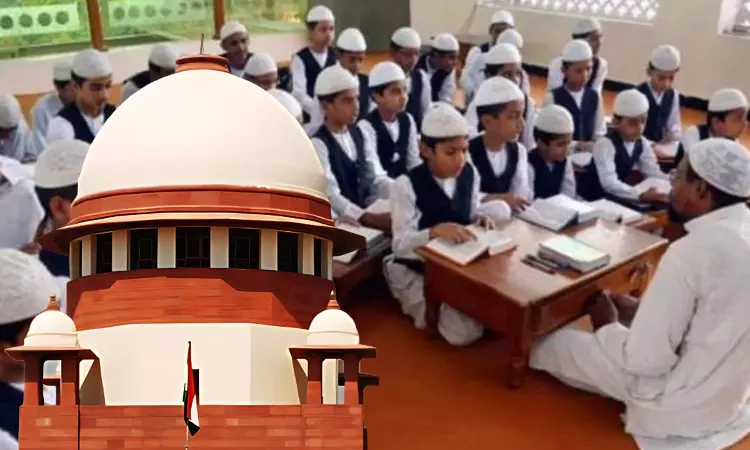Madrasas Unsuitable For Proper Education, Have Arbitrary Mode Of Working : NCPCR Tells Supreme Court
Anmol Kaur Bawa
11 Sept 2024 3:03 PM IST

Next Story
11 Sept 2024 3:03 PM IST
The National Commission for Protection of Child Rights (NCPCR) has filed written submissions in the Supreme Court expressing concerns about the quality of education imparted through Madrasas.The NCPCR filed its statement in the case challenging the Allahabad High Court's decision striking down the 'Uttar Pradesh Board of Madarsa Education Act 2004'. In April, the Supreme Court had stayed the...
